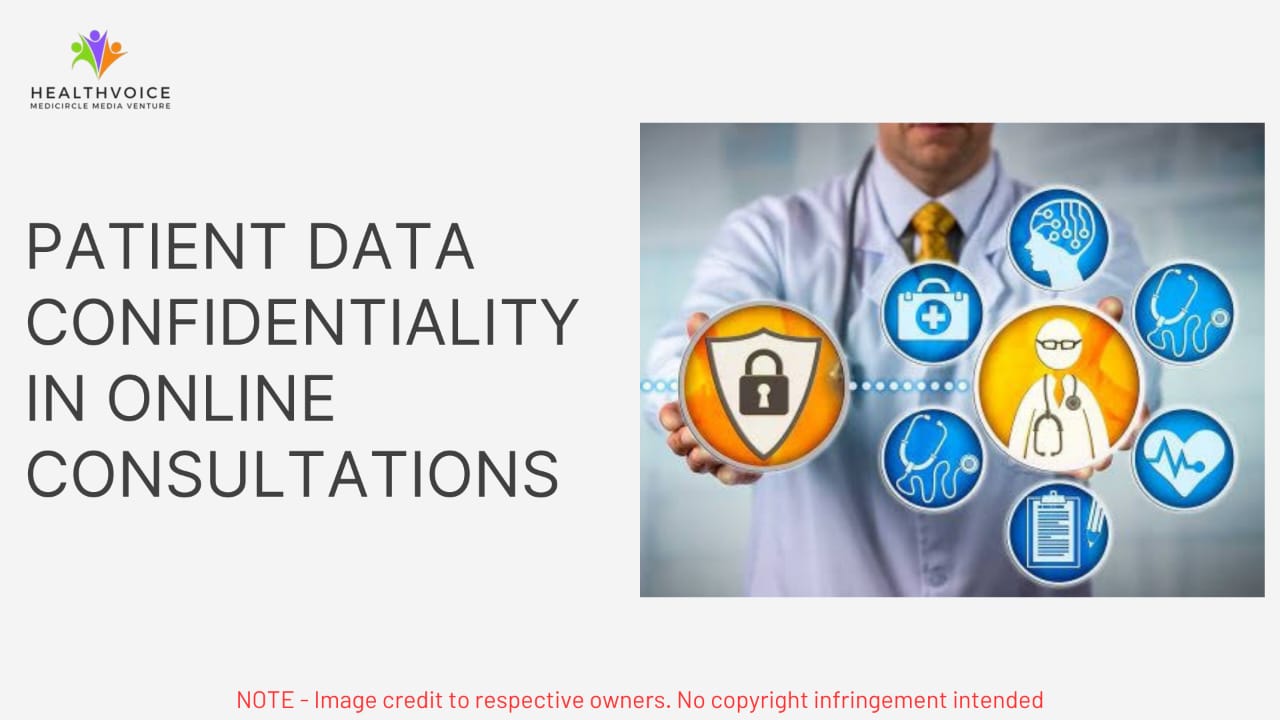Patient Data Confidentiality in Online Consultations
Online healthcare consultations offer convenience but raise privacy concerns. With awareness, simple precautions and secure platforms, patients and providers can ensure confidentiality remains at the heart of digital care.

A doctor's appointment from your living room. For many across India, from bustling metros to quieter towns, this is no longer a futuristic idea but a present day reality. It saves a long commute, avoids waiting rooms and brings specialist care to your fingertips. Yet, with this incredible convenience comes a very natural hesitation. When you share your most personal health details through a screen, a part of you wonders: who else might be listening? Is this digital conversation truly confidential?
This is not a small worry. It is at the heart of what makes healthcare work. That sacred trust between a patient and their doctor does not change, whether you are in a clinic or on a video call. The good news is that this new world of online consultations is built with this very trust in mind. With a little knowledge, you can feel as assured about your privacy online as you would behind the closed door of a doctor's office.
Trust in a new environment:
Think about a traditional clinic visit. The privacy is clear, a physical room with a door that shuts. In the online world, privacy is created differently, but the goal is identical: to keep your sensitive information safe from prying eyes.
The trust you place in your doctor also extends to the tools they choose to use. Serious healthcare providers partner with platforms that treat data protection with the utmost seriousness. In fact, these digital communications are often guarded by the same ethical rules and growing legal frameworks that protect face to face visits. The aim is simple: to build a secure, virtual space where you feel safe to speak openly, just as you always have.
Steps for your privacy:
A secure online consultation is a team effort. Your doctor handles the technical security of their platform, but you have a powerful role to play on your end. Here are some straightforward steps you can take to build a strong wall of privacy around your conversation.
- Choose your spot wisely: Find a quiet, private corner for your call. This could be a room where you can shut the door, a quiet balcony or even a parked car. The goal is to find a place where you can speak freely without the concern of family members, neighbors or colleagues overhearing your personal medical details.
- Connect with care: The Wi-Fi network you use makes a big difference. Always stick to your own password protected home network. Public Wi-Fi at a coffee shop or airport, while convenient, is not designed for private conversations and can be more easily accessed by others. Treat your health chat with the same privacy you would a banking transaction.
- Be a quick checker: Before you start the call, take a second to look at your browser. Do you see a small lock icon next to the website address? That is a good sign, it means your connection is encrypted. It is also wise to use the platform your doctor or hospital specifically recommends. This means they have likely checked it for safety and are confident in its use.
- Keep your device healthy: Just like we need regular check-ups, our devices need updates. Keeping your phone, tablet or computer updated with the latest software and security patches is a simple but powerful habit. These updates often fix security weaknesses, making it harder for anyone to access your device without permission.
Protecting your data:
While you are taking these steps, your healthcare provider is working behind the scenes with technology partners to create a secure environment. They use several key methods to keep your data safe.
The digital lock and key: Encryption. Secure platforms use something called end to end encryption. Imagine sending a secret letter in a locked box; only your doctor has the unique key to open it. Even if someone managed to intercept the data on its way, all they would see is a scrambled, unreadable mess.
Playing by the rules: Compliance. Responsible providers choose technology that follows strict data protection standards. This involves legal agreements that bind the technology company to handle patient information with care, ensuring they are a trusted partner in your health journey.
Verifying who is who: Authentication. To prevent any fraud, secure systems have ways to confirm that both you and the doctor are genuine. This might mean secure login steps or a code sent to your phone, adding one more layer of security before your conversation begins.
Moving forward with assurance:
The move to online healthcare is a significant shift, offering a new way to manage our well-being that is here to stay. Understanding that privacy is a shared goal, where your awareness combines with your provider’s commitment to security allows you to use these services with confidence.
Your health story is personal. Taking an active role in protecting it empowers you. It allows you to build a strong, lasting relationship with your healthcare providers, ensuring that trust and confidentiality remain the foundation of your care, no matter where you are.
#healthvoice #Telemedicine #DigitalHealthcare #OnlineConsultation #PatientPrivacy #HealthTech #VirtualCare #SecureHealthcare #DigitalTrust #ConfidentialCare #FutureOfHealthcare #HealthcareInnovation #PatientSafety #TelehealthIndia #HealthDataSecurity
